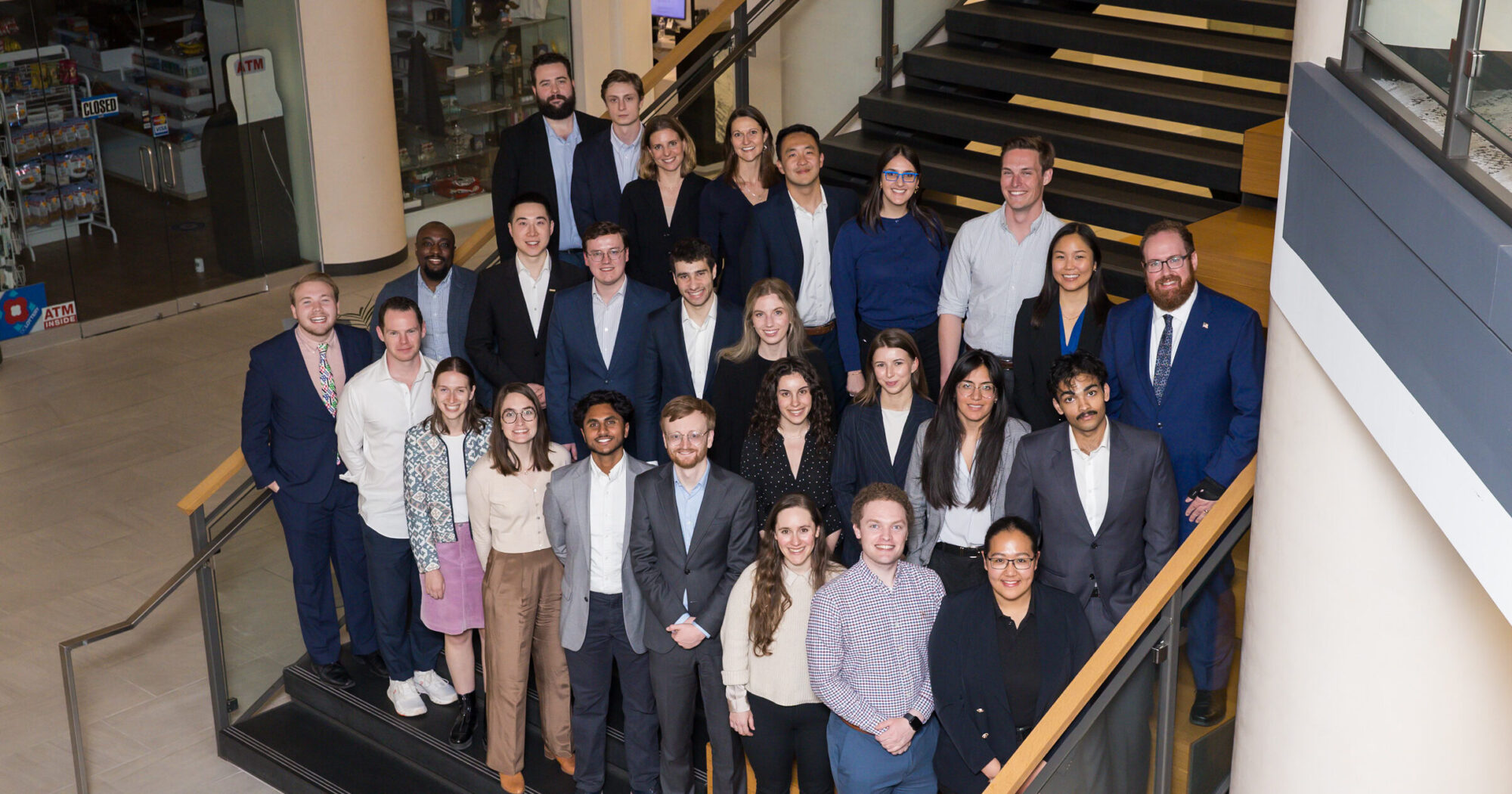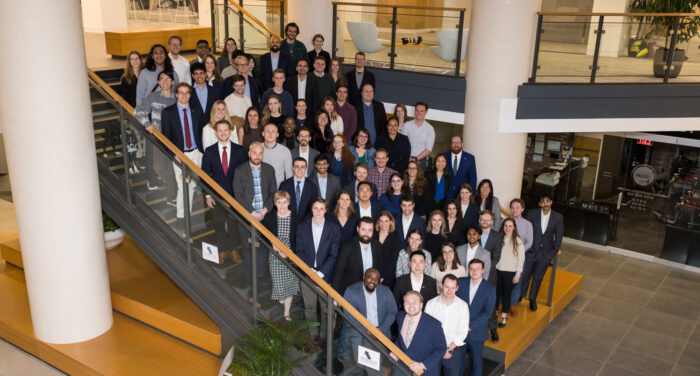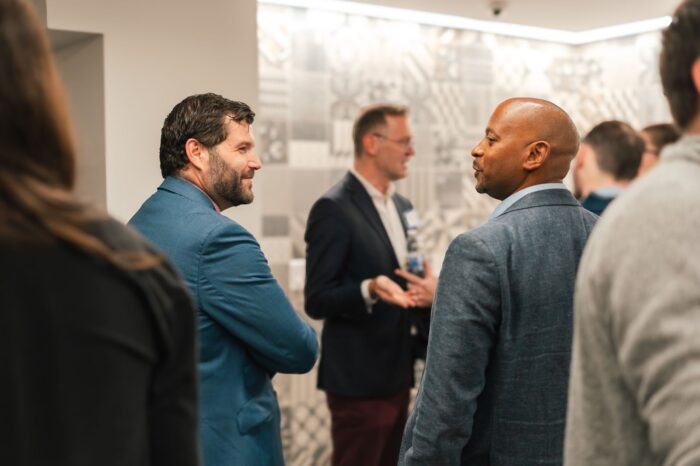
Applications open for 2026 Horizon Fellowship cohort
Program overview
The Horizon Fellowship places experts in AI, biotechnology, and other emerging technologies in federal agencies, congressional offices and committees, and leading think tanks in Washington, DC for up to two years. Fellows receive comprehensive training, networking opportunities, and access to a supportive community of 85+ other fellows and alumni to launch their careers in public service.
Emerging technologies like AI and biotechnology are rapidly reshaping many domains, from healthcare and science to national security and the economy. The US government plays a critical role in developing and governing these technologies, but it often struggles to find and retain the requisite technical expertise.
Horizon fellows help bridge this gap, bringing subject-matter knowledge and experience to these pressing issues. As a fellow, you’ll join a community of dedicated professionals working on these challenges, allowing you to apply your expertise to real-world policy issues and launch a career in public service.
Applications closed on September 2, 2025. Thank you for your interest, and if you would like to be notified of similar opportunities in the future, please complete our Career Interest Form here.
Key details
- Start date: Summer 2026 (with part-time, remote training from January–March 2026)
- Location: Washington, DC
- Duration: 6 months for junior fellows, 12 months for fellows (with potential for a second term renewal)
- Compensation: $113,000/year equivalent for fellows, $75,000/year equivalent for junior fellows, plus $15,000 in health care support. All fellows and junior fellows can also access a $3,000 professional development stipend and up to $3,000 for relocation to DC, if needed.
What fellows do
Fellows are placed in full-time policy roles that match their expertise, goals, and interests. Past fellows have placed at dozens of organizations and offices, including:
- Department of Energy’s Office of Critical & Emerging Technologies
- Senate Commerce Committee
- Foundation for American Innovation
- House Energy & Commerce Committee
- Cybersecurity and Infrastructure Security Agency
- Center for Security and Emerging Technology
As a fellow, you’ll gain first-hand policy experience, contribute to impactful work, and build relationships and skills valuable for public service careers. For most fellows, the Horizon Fellowship is only the beginning of their contributions to emerging technology policy. More than 90% of our dozens of alumni have transitioned to full-time roles in policy and government after their fellowship ended, including in roles at the State Department, the Department of Defense, and the National Security Commission on Emerging Biotechnology.
You can learn more about past fellows’ placements and accomplishments at Meet our Fellows and Fellow Accomplishments.
Eligibility and qualifications
We are looking for individuals who are passionate about making a difference and want to contribute their expertise to solving challenging problems related to emerging technology.
We value attitude, abilities, and knowledge more than formal credentials, and we welcome applicants from diverse and interdisciplinary professional backgrounds. The Horizon Fellowship has helped engineers, data scientists, historians, lawyers, doctors, and many other professionals transition into public service.
Competitive candidates generally have demonstrated subject-matter expertise in their technology area of interest — this could include relevant coursework, work experience, research projects, policy writing, or deep self-study. Prior policy experience is not required.
We support fellows at a range of career stages through three tracks:
- Executive branch track
- Congress track
- Think tank track (includes a junior track for recent graduates)
Fellows in all tracks participate in the same training and placement process, but junior think tank fellows are only eligible for think tank placements and receive a different compensation package. Learn more about qualifications for each track here.
Research shows that great candidates often disqualify themselves too quickly, especially those from underrepresented groups. If you are excited about the program but uncertain about your qualifications, we strongly encourage you to apply.
Program structure
Successful applicants will go through training, matching, and placement phases from January to summer of 2026.
- Training (January–March 2026): The selected fellowship cohort completes a part-time, work-compatible remote training on how the US federal government works, applied skills (e.g., policy memo writing), and AI and biosecurity policy debates. The training culminates in an immersive in-person weekend in Washington, DC, where fellows connect with dozens of emerging technology experts from across the policy world. The curriculum and networking are designed to prepare fellows to secure high-impact placement offers and perform high-quality work during their fellowship.
- Matching (April–May 2026): After training, fellows begin an individualized matching process, during which Horizon connects them with prospective host organizations within their respective tracks (executive branch agencies, congressional offices and committees, or think tanks). Most fellows receive multiple offers and have the opportunity to choose the placement that best fits their goals. Horizon has a 100% fellow placement rate.
- Placement (Spring/Summer 2026 onward): After successfully matching, fellows work with their chosen host organization to finalize a start date that works best for them (typically during the summer). Horizon provides full-time salary and benefits once their placement begins. Fellows’ work is fully supervised and directed by their host organization.
Application process
The fellowship application process consists of written questions, interviews, and short paid work tests. We plan to make most offers by the end of November 2025.
See the Become a Fellow and Applicant FAQ pages for more information on the program content, eligibility criteria, application process, and other details. Applications closed on September 2, 2025.
About the Horizon Institute for Public Service
The Horizon Institute for Public Service is a non-partisan, non-profit organization that helps the US government navigate our era of rapid technological change by supporting the next generation of emerging technology policy talent. In addition to our flagship fellowship program, Horizon offers a suite of additional programs designed to support individuals at all career stages, from undergraduates interested in exploring policy careers to mid-career professionals seeking to transition into government. These include workshops and events, advising, a comprehensive career resource website, and a career accelerator program designed to help individuals jump-start policy careers related to AI.



